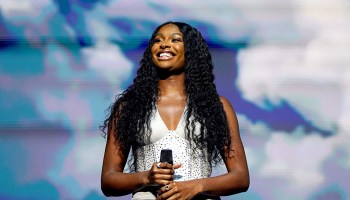Politics Week in Review
Who won Wednesday night’s presidential debate? Social Media. Twitter logged in more than 11 million tweets during the 90-minute exchange between President Obama and his Republican opponent Mitt Romney. According to Google, people searched a number of terms and issues during the debates, most frequently Simpson-Bowles, Dodd-Frank, "who is winning the debate" and Big Bird. Referring to federal subsidies he would eliminate if elected president, Romney mentioned Big Bird when he said he would cut funding to PBS, which broadcasts “Sesame Street.” Simpson-Bowles is the federal debt reduction proposal that would have required a combination of spending cuts and tax increases. The bipartisan commission formed to come up with a solution to the federal debt fell short of enough votes to send the bill to Congress. Obama signed the Dodd-Frank bill into law in 2010, expanding federal oversight of financial regulation of banks. Twitter reported that Romney’s reference to Big Bird and some heated exchanges with debate moderator Jim Lehrer, a news anchor for PBS, drove some of the heaviest traffic of the evening.
The biggest Twitter response of the evening (158,690 tweets in just one minute) came when Lehrer, who seemed frustrated much of the evening by the candidates’ unwillingness to heed to time limits on their responses, cut off Romney who wanted to control what the next topic would be by saying, “Let’s talk about…” and Lehrer replied, “Let’s not.” In fact, the site said, the debate drove more traffic than any other political event in Twitter history.
While residents of other nations have seen the practical benefits of social media to exchange political views, build support for an issue and quickly report arrests of dissidents and the occurrence of natural disasters, Americans have more often used social media to, well, be social with friends and family. The real-time exchanges and quick access to research have made it easier for the citizenry to engage in lively discussions about political and social concerns and give candidates a sense of what really is on voters’ minds.
"People still use old media to watch the debates, but they use social networks and other new media to have influence, voice opinions and be involved," Scott Talan, an assistant professor of communication at American University who studies social media and politics, told The Associated Press (AP).
"Old media is not dead; it's growing. But now we have more people involved and engaged because of digital means." According to the AP, the debate was the fourth most tweeted telecast of any kind, coming in just behind the most recent Grammy awards, MTV's Video Music Awards and the Super Bowl, according to William Powers, director of the Crowdwire, an election project of the social analytics firm Bluefin Labs.
The project found 55 percent of the social comments about the debate were made by women, 45 percent by men. Facebook reported Romney was mentioned 11 percent more during the debate than Obama, but did not say what percentage was favorable. The site said the most mentioned topics were jobs, taxes, ObamaCare (health care reform) and insurance. And there’s an app being tested to gauge reaction to all the scheduled presidential debates. According to Futurity, more than 175 political science professors nationwide have registered some 12,000 students to field test the real-time polling app, developed by researchers at the University of California, Davis, the University of Maryland, and the University of Arkansas, Little Rock. “Most polling is done after a debate occurs,” Amber Boydstun, assistant professor of political science at UC Davis and co-developer of the app, called React Labs: Educate, said on the site. “There is very little data in the political science world that deals with real-time reaction, and this will help us get that information.” The app allows viewers to sign in on their phones or computers to register agreement or disagreement and other reactions to candidates’ arguments, including whether they believe a candidate is dodging an issue or putting a spin on the facts.
Some television stations also used a similar real-time app that allowed viewers to sign in to the station sites during the debate and register their responses to the candidates’ remarks. Boydstun said he hopes the app will spur a greater engagement in politics by young adults and provide a variety of teaching resources for instructors.
But perhaps the most telling result was the distinction some viewers made between who won the debate and who might win the election. Techzone 360.com reported that 52 percent of those using the React Labs app said they believed Romney won the debate, but 60 percent said they intended to vote for Obama. So Romney may have won a battle, but not the war.
















